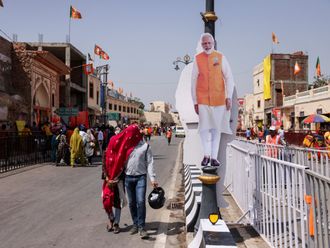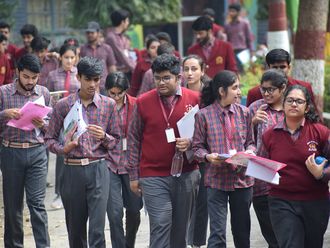Mumbai: This city has been given the dubious distinction of being the malaria capital of the country.
More than 40 people have died of the disease already this year and thousands of patients have been admitted to crowded public and private hospitals with malaria this monsoon.
And the continuing existence of swine flu is still of concern to public health bodies.
Civic authorities have indicated they are at their wits end to control the spread of the disease, which was reaching epidemic proportions.
There had been three-fold rise in malaria cases from last year to this.
Civic leaders have said in July alone, 12,000 people have tested positive for the disease, from the 100,000 blood smears taken in house-to-house surveys.
Last year, the cases of malaria numbered 4,380 in the same period. While government hospitals are packed with patients, many malaria patients have had to sleep on the floor for lack of beds. Private hospitals are equally burdened with malaria, fever and other monsoon-related cases.
Only serious cases arenow being admitted, civic leaders said. Swine flu was worrying health officials in Pune in particular.
In response to the concern, the Brihanmumbai Municipal Corporation said it would soon start distributing free medicines through 200,000 private practitioners and promote a vigorous hygiene campaign, especially in areas where two thirds of the cases have been reported.
Central Mumbai's Byculla, Parel, Dadar and Kings Circle as well the suburbs, particularly Kurla, Ghatkopar and Andheri, have reported high numbers of cases of malaria.
Civic leaders blamed the hundreds of construction sites, closed mills and slums which served as the breeding grounds for mosquitoes.
The downpour in July was also being held responsible for the alarming rise in malaria cases.
Brihanmumbai Municipal Corporation says it has been running constant awareness campaigns and doctors have been advising the public to use chemically treated mosquito nets to reduce the chances of contracting the disease.
Whilst the BMC carries out fumigation across the city, builders and contractors have also been asked to care about their workers and environment.
There are nearly 2,000 construction sites across Mumbai. Camps are to be set up to collect blood samples from patients and students are asked to visit slums to advise people on hygiene and the cleanliness of their surroundings.
Houseowners are advised to regularly change water in vases or pots to prevent mosquitoes from breeding in them.
A number of council members demanded at Thursday's municipal meeting that malaria must be declared an epidemic.












